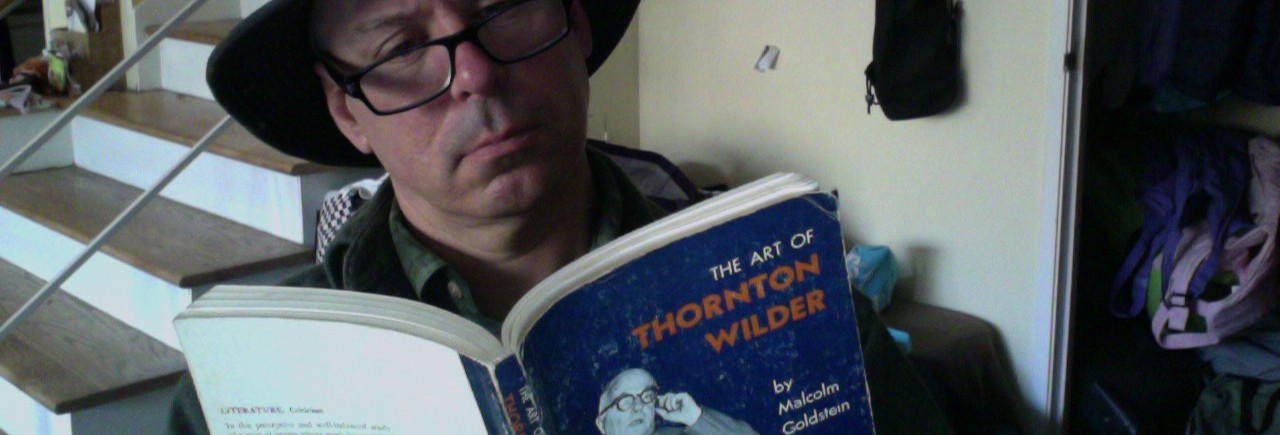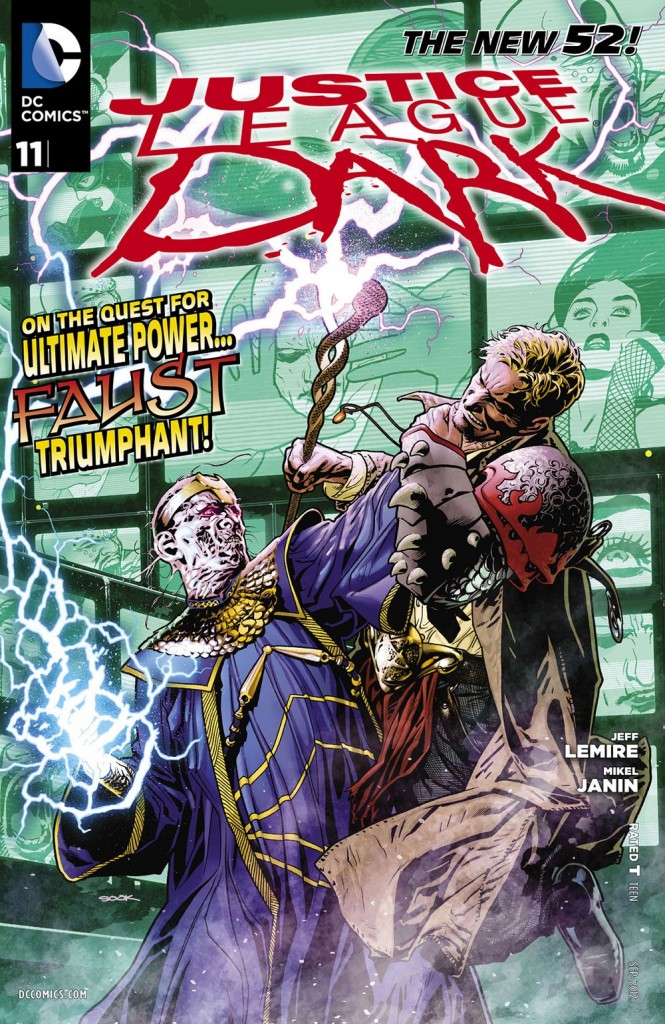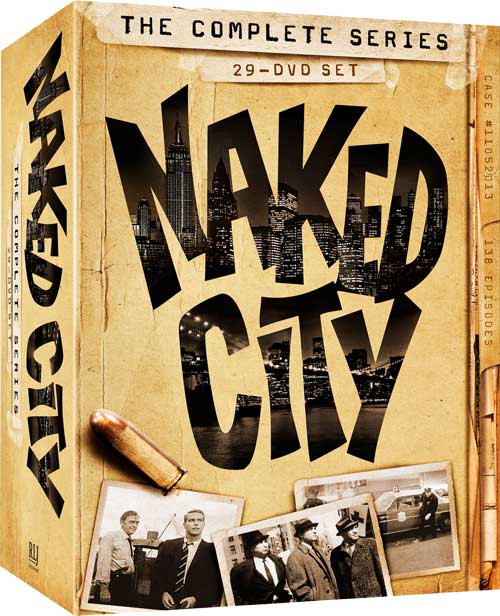I’m a Doctor Faustus freak. Two fun manifestations of the character I’ve found recently:
Felix Faust, the DC supervillain version of the Marlowe character, has been a key player in the denouement of the epic, universe-changing Forever Evil saga which has spanned numerous DC titles and dozens of individual comics over the past few months. This Faust has existed for centuries with magical powers. He has sold his soul, then been given opportunities to buy or win it back, then given it up again since he’s such a junkie for magic.
Before the Forever Evil storyline even started, Felix Faust had already appeared in one of the titles that’s central to it: Justice League Dark. The comic chronicles a group of netherworldly characters (including one of my all-time favorites, Deadman) who must band together, often against their better instincts, in order to, you know, save the universe. Actually, the universe is too limited a term for all the worlds the JLD has saved in their 30 or so issues of existence. It’s a joy to see some of these characters (including a preponderance of female heroes: Madame Xanadu, Nightmare Nurse, Pandora, Zatanna, Princess Amaya, Black Orchid) refreshed in these ongoing adventures. Renewed supervillains such as Felix Faust are the icing on the cake.
A box set of the esteemed 1960s TV series Naked City was released last year—all four seasons, including the 39 half-hour episodes from the first season (when James Franciscus and John McIntire starred) and the 99 hour-long episodes (with Paul Burke and Horace McMahon in charge). I’ve been diligently working my way through it since Christmas.
There are many reasons to recommend Naked City to theater fans. Its creator Sterling Silliphant may not have come up through live theater (having begun instead as a Hollywood publicist and producer) but he honed his screenwriting skills on the live TV theater series Playhouse 90, and many of the Naked City scripts are so dialogue-heavy and tightly structured that they could easily be adapted into play scripts.
Essentially a cop show, Naked City was filmed on the streets of New York, and was a precursor to all those Law & Order shows in the way it gave opportunities to up-and-coming stage actors in that city. The list of guest stars who became movie and TV stars is unparalleled: Dustin Hoffman, Robert Redford, Leslie Nielsen, Peter Falk, Walter Matthau, Diane Ladd, Jack Klugman (in several different episodes, as several different characters), Alan Alda, Gene Hackman, Christopher Walken, Audra Lindley, Jean Stapleton, Martin Sheen, George C. Scott, Burgess Meredith, Tom Bosley, Ed Asner…
The 1962 episode “The Most Important Man in the World” was written by Howard Rodman, based on a story by Rodman and fellow TV-drama veteran Eustace Cockrell, and directed by Paul Nickell. It stars Myron McCormick, who was Sergeant King in the original Broadway production of No Time for Sergeants and who won a Tony as Luther Bills in South Pacific. On Naked City, he plays a character not accidentally named Christian Marlowe, since the program directly references another Chris Marlowe, the Elizabethan playwright one, and his celebrated Tragedy of Doctor Faustus. McCormick’s Marlowe is a schoolteacher being bribed by gangster Phil Clifford (Richard Conte) so that Clifford’s son (still-active actor/playwright Benedict Herrman when he was a young boy)
At one point in the hour-long drama, Conte’s gangster character wears down McCormick’s still-ethical teacher character by sending over a woman wrapped up in clear plastic wrap like a basket of flowers, who announces that her name is “Helen.” Helen is played by Jennifer Billingsley, who played Bear Girl and Blue Bird in the original New York production of the musical Carnival!
Marlowe: Is your name really Helen?
Helen: It is now, Mr. Clifford says. That’s some sort of inside joke, isn’t it?
Marlowe: There’s a play about a schoolmaster who signs a contract with the devil. In exchange for the man’s soul, the devil promises him anything. He just has to ask for it. One of the things he asks for is the most beautiful woman in the world, a lady named Helen of Troy. (pause) What do I do with you?
Helen: Untie my ribbon. Have a drink with me. That might be nice.
Marlowe: I’m afraid I’ll have to send you back to Mr. Clifford.
Helen: That’s too bad.
Marlowe: Yes, it is. It’s too bad.
Marlowe doesn’t send her back, succumbing to her and other gifts from the evil Mr. Clifford. At a drunken party, the schoolteacher refers to Helen as “the face that launched a thousand ships” and exhorts her to “give me back my soul again.”
Other stage luminaries appearing in this single Naked City episode: Anne Seymour, who had played Sara Delano Roosevelt in the original Broadway production of Sunrise at Campobello; Barnard Hughes as a judge; Doris Roberts, who had ten Broadway shows to her credit between 1955 and 1978; Eugene Roche (better known for film and TV, but part of the 1963 U.S. premiere of Eric Bentley’s translation of Brecht’s Mother Courage and Her Children in 1963, directed by Jerome Robbins) as a social worker; and William Traylor (who did two Noel Cowards and a Tennessee Williams on Broadway).
Only this, gentlemen,—we must perform the form of Faustus’ fortunes, good or bad.


